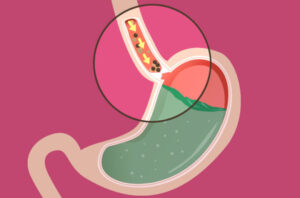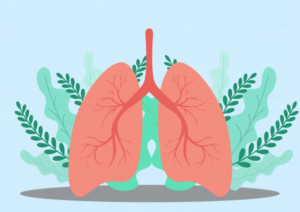
We’ve all experienced different types of coughs at some point in our lifetimes and whilst most of the time a cough is a symptom of something minor, there are occasions where something more serious could be at work.
The world has arguably never been so conscious of the physical act of coughing, due to the global coronavirus pandemic. In this piece, we’ll cover the details of why Covid-19 and coughing are intertwined, and discuss other types of coughs, causes and how you can treat them.
Smoker’s cough
Characterised by: during the early stages of a smoker’s timeline, their cough is generally a dry cough. This then evolves into a mucus and phlegm-like cough as a smoker continues to smoke throughout their lifetime.
A smoker’s cough occurs when chemicals and particles that make up tobacco irritate the lungs, causing the body to create muscus. The mucus is the body telling you it’s trying to cleanse itself of these harmful chemicals. Overtime, this continuous process of ‘rinse and repeat’ can cause COPD (chronic obstructive pulmonary disease), which refers to 4 different types of lung disease, all of which are irreversible. However, quitting smoking will almost certainly lead to your cough subsiding and improve the quality of your breathing.
Coronavirus cough
Characterised by: the type of cough associated with the disease is a ‘new and persistent cough’, according to the NHS.
It’s now widely known that a new and persistent cough is the main symptom of coronavirus – other common symptoms include loss of taste and smell and breathing complications, both mild and severe. One of the biggest challenges that the disease has brought for potential patients, is actually knowing whether their cough is typical of Covid-19.
If you’re unsure whether to seek medical health or a test, you could try this Covid-19 self-assessment questionnaire, designed by doctors in Los Angeles. It’s recommended that if you have 3 coughing episodes of more within 24 hours, you should seek to get tested.
Acid reflux
Characterised by: tickly and/or chronic cough that can sometimes feel a little like an itch.
Whilst acid reflux isn’t by any means a life-threatening condition, it can certainly affect a person’s day-to-day life. When the muscle that’s in control of the channel between your stomach and oesophagus doesn’t close completely, food and stomach acid can find their way back into the oesophagus, causing reflux.
Symptoms include a bad taste in the mouth, heartburn and a tickly, persistent cough. There are organic ways you can reduce your symptoms if you suffer from acid reflux, like avoiding spicy, acidic and high fat foods, though if you feel this isn’t working, the drug omeprazole can be prescribed to control it.
Lung cancer cough
Characterised by: persistent or worsening phlegm-like cough/presence blood in cough lasting for longer than 2-3 weeks. Hoarseness and wheezing.
Smokers are 15-30 times more likely to get cancer or die from lung cancer, but that doesn’t mean to say that non-smokers aren’t vulnerable too. Poor air quality, being exposed to certain chemicals such as arsenic and asbestos and genetics all play a part in the development of lung cancer. If you’re looking at lowering your risk of lung cancer, talk to your GP who can help you put a plan in place to change certain lifestyle habits.







A great read for me, especially for the covid cough. As mentioned in the blog, knowing if I had covid or just regular flu/cough was the biggest challenge. Luckily I got tested and it was just regular cough that I had gotten. Better to be safe and tested
I think you have to be extra careful these times, especially with the current pandemic going on. If you’re not sure, you should definitely get tested.